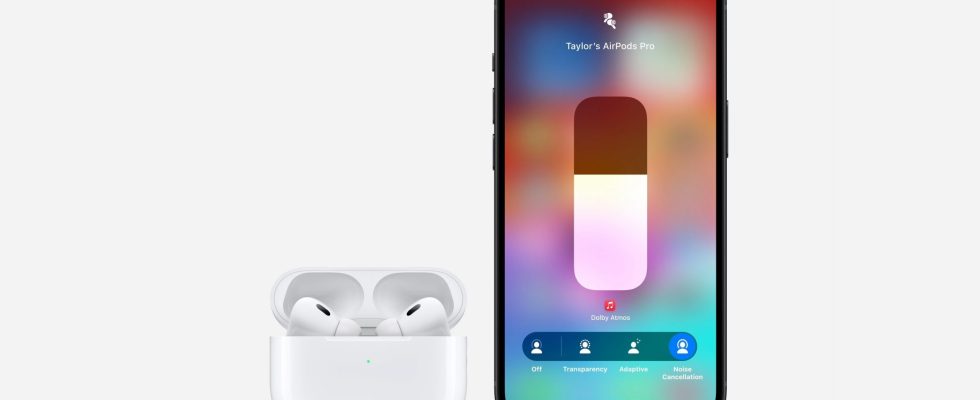The annual iPhone keynote took place on September 12th at the Apple Campus in Cupertino. As part of the event, a new version of the AirPods Pro 2nd generation was announced. Although only an upgrade to USB-C was explicitly mentioned, there are actually significantly more improvements.
Finally the wait is over as Apple has finally officially launched the iPhone 15 series. All four models are equipped with one for the first time USB-C port equipped, meaning the years of the Lightning cable are finally numbered. While the connection on the iPhone 15 and 15 Plus is based on USB 2.0, the more expensive Pro models offer a faster USB 3.0 port with up to 10 Gbit/s. However, this speed can only be achieved with an optional cable. By the way, Apple also had one during the presentation new variant of the AirPods Pro (2nd generation) announced.
Here too, the previous Lightning port is replaced by a modern USB-C port. These are the manufacturer’s first headphones to use the universal connection. However, it’s not just this change, because the new variant offers further upgrades that were not mentioned during the keynote. The new charging case is also like this IP54 protected from the ingress of water and dust.
In addition, the refresh now offers lossless audio with low latencies, 20 bit and 48 kHz should be explicitly supported. Apple is thus preparing the in-ears for the launch of the Vision Pro mixed reality headset. The battery life remains unchanged up to six hours specified.
Apple is currently charging 279 euros to refresh the AirPods Pro (2nd generation). The new charging case cannot be purchased separately at this time. Delivery is scheduled to begin alongside the iPhone 15 on September 22nd. The significantly more expensive ones AirPods Max (buy here) are still only offered with a Lightning connection. However, it seems likely that Apple will convert the entire range to USB-C in the near future.
Sources
For reasons of better readability, male, female and various language forms (m/f/d) are not used at the same time. All personal names apply equally to all genders.

